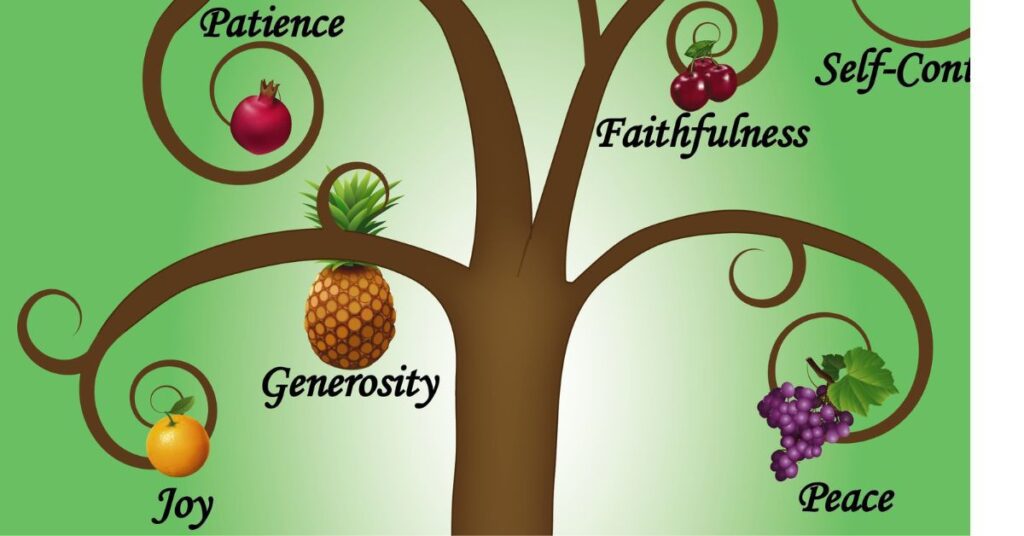
Introduction
The two most powerful warriors are patience and time. Often underestimated and misconstrued, patience is a powerful force that empowers us to stand in tandem with time. It is a gift that, when properly understood, can transform our lives. Patience is not passiveness or immaturity; it is a virtue that can coexist with strength, gentleness, ambition, and assertiveness. In the complex dynamics of family life or the high-pressure environment of leadership, patience is the invaluable ability to maintain composure and tolerance under duress. It is beneficial when circumstances diverge from our desires, or immediate needs are unmet.

Is Patience Misunderstood?
When embodied in our daily actions, patience significantly shapes our narratives of resilience. It helps us avoid feelings of anxiety, anger, apprehension, restlessness, or disappointment. By maintaining a mindful and unwavering presence, we can navigate through slow progress or endure long waits, influencing our decision-making processes and contributing to our overall life satisfaction. The key is to find a harmonious balance and allow ourselves the time and effort to cultivate this trait.
Developing patience involves examining your beliefs and emotions when responding to situations. This introspective journey is essential for understanding and managing your impatience. Consider the guiding principles you want to integrate into your life. Additionally, meditation is a discipline that demands significant persistence but can yield substantial improvements in your ability to remain patient. It is a practical solution that can significantly improve your patience.
“The Two Most Powerful Warriors Are Patience And Time
Have you ever taken the time to reflect on the significance of patience? Consider the beautifully intricate interplay between the passage of time and the unfolding of human existence. Everything in life unfolds in its own time and season, guided by the universal truth that time influences our lives. As a result, our impatience and frustration often stem from our struggle to reconcile with time. While nature gracefully adheres to the gentle rhythms of time, humans usually strive to master time, attempting to mould it to their desires and ambitions. Furthermore, every endeavour has its appointed season and timeline for fruition.
Embracing the waiting period for a desired outcome is essential for fully realising the benefits of our efforts. It symbolises a patient and unwavering commitment to achieving our aspirations. As we navigate our journeys, let us always remember the wisdom that the two most powerful warriors are patience and time.

Being impatient goes against the natural flow of things; it triggers the release of stress chemicals in the body, which can have detrimental effects on our health, leading to increased anxiety, worry, and depression. When you feel impatient, the body can release stress hormones like cortisol and adrenaline. These hormones are part of the body’s natural “fight or flight” response, leading to increased heart rate, elevated blood pressure, and heightened alertness. Over time, the constant release of these stress chemicals can have adverse effects on the body, such as contributing to chronic conditions like high blood pressure and heart disease.
Finding healthy ways to manage impatience and stress is important to minimise the impact on your overall well-being. It is almost as if impatience should come with a health warning that says, “Impatience can harm your health.” This raises the question: Why are people so impatient with so many things if they have the potential to endanger their well-being? It is important to understand that patience is essential for achieving success and prosperity in any endeavour. Every purpose is linked to a specific moment when it reaches its full potential. This fullness of time is a crucial component of every purpose, influencing its manifestation and impact.
Fight Or Flight
The fight or flight response, or acute stress response, is a physiological reaction that occurs in response to a perceived harmful event, attack, or threat to survival. When the body experiences this response, it releases stress hormones such as cortisol and adrenaline. These hormones trigger various physiological changes in the body, including increased heart rate, elevated blood pressure, heightened alertness, and a surge in energy. The purpose of the fight or flight response is to prepare the body to either confront the perceived threat or flee from it.
This response is an evolutionary adaptation that helped our ancestors survive in dangerous situations. It prepares the body to deal with immediate danger by mobilising energy and enhancing physical performance. In modern times, the fight or flight response can be triggered by various stressors, not just physical threats. It can be activated by psychological stress, work pressure, or challenging situations. While this response can be beneficial in certain situations, chronic activation of the fight or flight response can have adverse effects on health, leading to increased anxiety, worry, and potential long-term health issues. Understanding how the fight or flight response works can help individuals recognise and manage their body’s stress reactions healthily.
Patience Is A Fruit Of The Spirit
The cultivation of patience is akin to tending to a precious fruit. Like any other fruit, patience must be carefully nurtured and developed. Since patience is considered a fruit of the Spirit, it can only be attained through the influence and work of the Holy Spirit. Through the Holy Spirit, we are transformed to become more like Yeshua, and patience is cultivated within us. As this is a personal endeavour, it requires daily attention to yield positive results. It is essential to be mindful of the thoughts we allow into our minds as they influence our hearts. Ultimately, our words and actions will reflect what resides in our hearts. The choice to cultivate patience lies within our own hands.

Patience is often described as the ability to endure waiting, delay, or provocation without becoming annoyed or upset. This trait is highly valued as it allows individuals to remain calm and composed in challenging situations. Patience is often associated with wisdom and is seen as a virtue that leads to inner peace and understanding. In many belief systems, it is believed that practising patience can lead to personal growth and spiritual development. Embracing patience as a fruit of the spirit can bring tranquillity and resilience in facing life’s adversities.
Understanding the Benefits of Patience
1. Patience Leads to Spiritual Growth
Scriptural reference: James 1:2-4;
Benefit: “Exercising patience in the face of challenges is crucial to personal development and spiritual evolution. Going through hardships with patience not only shapes our character but also instils the virtue of perseverance in us. We are ultimately leading to greater spiritual fortitude.”.
Benefit: “Exercising patience in the face of challenges is crucial to personal development and spiritual evolution. Going through hardships with patience not only shapes our character but also instils the virtue of perseverance in us. We are ultimately leading to greater spiritual fortitude.”.
Application: When confronted with difficulties, rather than allowing frustration to take hold, reflect on how these challenges can help you grow and develop. Have faith that by practising patience, you are allowing for a gradual process of personal refinement, ultimately leading to a transformation of your spirit over time.
2. Patience Brings Peace and Reduces Anger
Scriptural reference: Proverbs 15:18;
Benefit: Patience involves taking the time to understand different perspectives and emotions, which can help prevent conflicts from arising. By managing your emotions and responding thoughtfully to challenging situations, you can minimise the likelihood of unnecessary arguments and maintain peaceful relationships.
Application: In a situation filled with tension, resist the temptation to react impulsively. Instead, take a moment to pause, gather your thoughts, and take a deep breath. Reflect on the wisdom found in Proverbs 15:18, which emphasises the importance of responding calmly rather than reacting in anger. Responding calmly and composedly can lead to healthier interactions and strengthen relationships.
3. Patience Reflects Yahweh’s Love
Scriptural reference: 1 Corinthians 13:4;
Benefit: “Patience is a manifestation of love that mirrors the compassionate nature of Yahweh. When you exhibit patience towards others, you demonstrate Yahweh’s enduring and benevolent love.”
Application: It is important to practice patience and tolerance toward the faults and shortcomings of others. When you find yourself feeling irritated or disappointed by someone, it’s helpful to remember that love requires patience. Rather than reacting with negativity, try to respond with empathy and grace. Instead of allowing an adverse reaction to take over, opt for a response demonstrating empathy and grace.
4. Patience Leads to Reward
Scripture Reference: Hebrews 10:36;
Benefit: “Exercising patience is essential for receiving Yahweh’s promises. Endurance plays a significant role in witnessing the fulfilment of Yahweh’s plan, and patience empowers you to wait for the opportune moment when everything aligns perfectly.”
Application: As you wait for answers to your prayers or seek guidance, it is important to trust in Yahweh’s perfect timing. Use this waiting period to strengthen your faith and stay committed to following Yahweh’s will. Remember that your patience during this time will ultimately lead to blessings in the future. Remember, all good things come to those who wait.
5. Patience is a Fruit of the Spirit
Scripture Reference: Galatians 5:22-23;
Benefit: Patience shows that you are living a Spirit-filled life. It demonstrates that you align with the Holy Spirit, as patience is one of the tangible results of the Spirit’s life-changing work within you.
Application: Developing patience involves actively seeking the daily guidance of the Holy Spirit. It entails praying for assistance to maintain patience in various situations, such as waiting for something significant or interacting with challenging individuals. By depending on the Spirit, patience will organically flourish within you.
6. Patience Brings Success
Benefit: The art of patience is often underestimated, yet it holds more value than physical strength or impulsive action. Patience is a virtue that leads to tremendous success and victory, as it requires wisdom and self-control.
Application: When faced with important decisions or working towards achieving long-term objectives, it is crucial to exercise patience and refrain from hastily taking action. Instead, take the time to evaluate your choices thoroughly, seek advice from knowledgeable individuals, and have confidence that deliberate and considerate actions will lead to more favourable outcomes.
Summary of Application:
Regularly ponder and internalise verses highlighting the virtue of patience, such as James 1:2-4 and 1 Corinthians 13:4.
Developing patience daily is a valuable practice. You can begin by embracing small opportunities to exercise patience, such as calmly waiting in line or responding thoughtfully in a conversation.
Seek divine grace to cultivate the virtue of patience in every situation, relying on Yahweh’s perfect timing and infinite wisdom.”
Displaying patience in your relationships involves demonstrating empathy, actively listening to others, and offering forgiveness when needed.
By embracing and implementing the virtues of patience outlined in scripture, you can position yourself in harmony with Yahweh’s divine purpose and encounter tranquillity, personal development, and satisfaction.
Developing patience is a complex journey that demands dedicated effort and a strong spiritual commitment. The Bible serves as a wellspring of insight for cultivating and fortifying patience across different facets of life. Here are practical methods for nurturing patience, with scripture as a valuable compass:
Conclusion

Exercise Self-Control in Speech and Actions
Scripture Reference: Proverbs 16:32;
Technique: Exercising patience involves self-discipline, mainly when dealing with challenging interactions. By managing your responses, you demonstrate composure and nurture your capacity for patience.
Implementation: When you are tempted to react impulsively, whether due to anger or frustration, take a moment to pause and inhale deeply. Recite the words of Proverbs 16:32 in your mind and seek the guidance of the Holy Spirit for the inner strength to respond with composure and wisdom. Consistently practising self-control in your daily interactions contributes to developing patience over time.
I hope you did not give me a ride during the time you were unlicensed as a driver. You have always looked so at home behind the wheel. What I can confirm is that what invites as short cut can very easily be the ‘long cut’. You might find out that what promises to be a short cut route that can save you two years actually becomes a route that adds 2 years to make the initial journey 4 instead of 2 years. The choice results room a lack of patience. Its a very difficult lesson to learn especially for young people.
Hello Wellie, you were quite safe back in the day as my driving skills were impeccable. Putting all jokes aside, impatient is on the increase as people in today’s society want instant success in all facets of life. As we have learned from our previous blog there is a fullness of time for everything under the sun no matter who you are and as the title depicts the missing key for success in people’s lives is the element of patience, for as the saying goes “haste makes waste”. Thanks for another great feedback Sir.